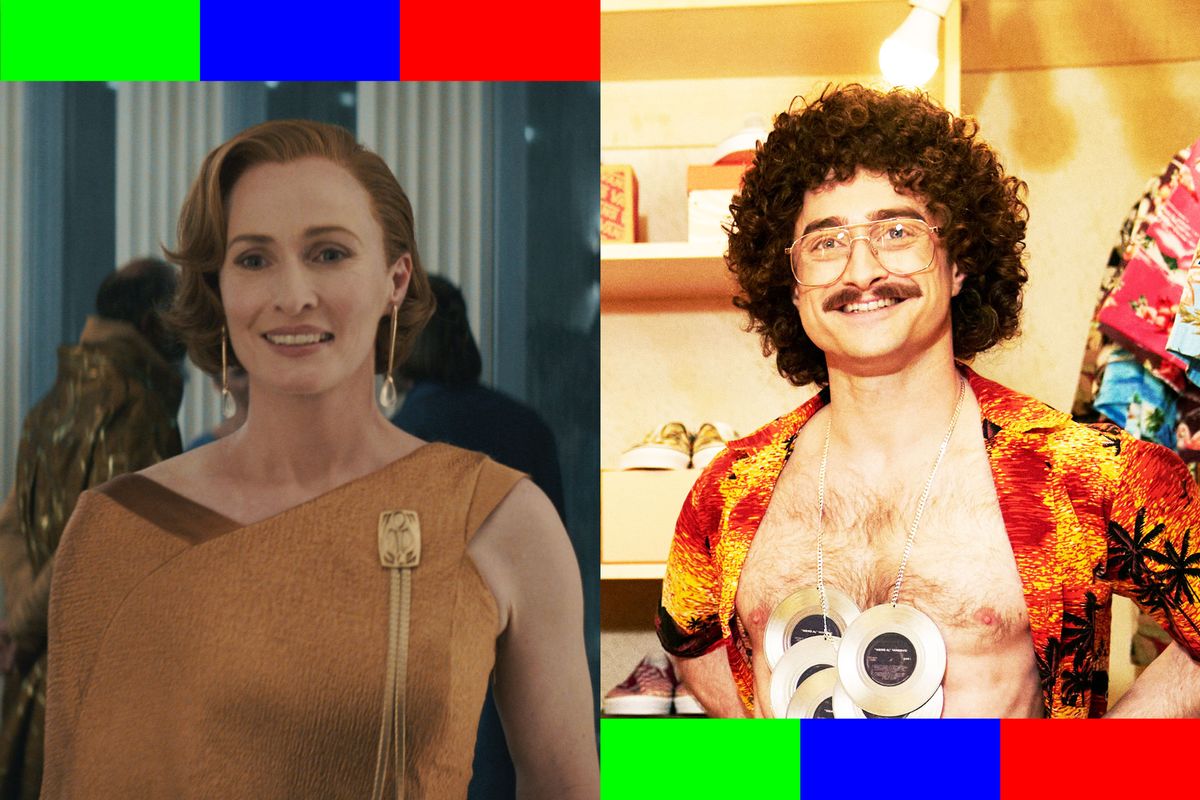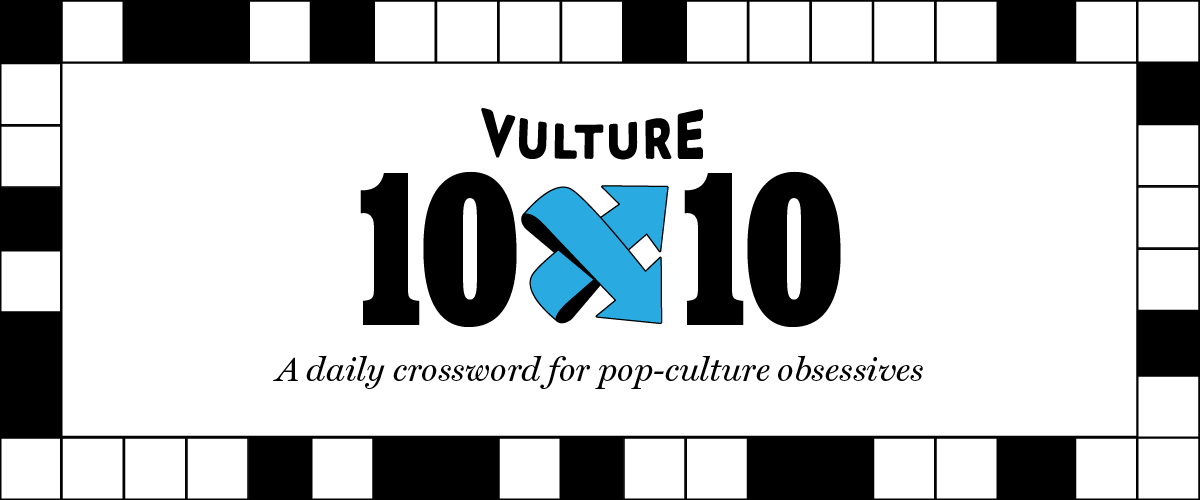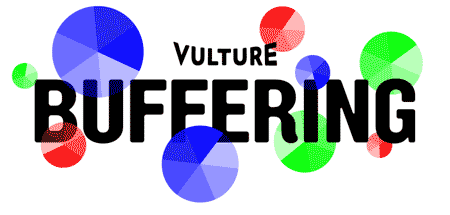 Happy fall, yâall! After a few weeks off for some late-summer rest and relaxation, Buffering is back with thoughts about what the next three months hold for the streaming universe. Among the things on my mind: how advertising will (or wonât) change Disney+ and Netflix; whether Ghosts and Abbott Elementary can build on their freshman-year successes; and how the shift of network franchises like Dancing With the Stars to streaming will play with audiences. I hope all your favorites won some Emmys Sunday, and as always, thanks for reading. âJoe Adalian |
| Enjoying Buffering? Share this email with your friends, and click here to read previous editions. |
| Stay updated on all the news from the streaming wars. Subscribe now for unlimited access to Vulture and everything New York. |
 |  | | Disney+âs Andor; Rokuâs Weird. Photo-Illustration: Vulture; Photos by Disney+ and Roku | | |
| Fall arrives next week, as does the official start of the new TV season, at least as measured by Nielsen. In this age of Nonstop TV and streaming abundance, the moment when Nielsen resets its ratings-measurement clock simply isnât the big deal it was even as recently as ten years ago. But the last three months of the year still tend to be packed with a ton of big television events and programming initiatives, and 2022 is no exception. Here are seven things worth keeping an eye on this fall: |
| New NBC episodes will now be on Peacock instead of Hulu. Will that hurt NBC? |
| From the moment Hulu launched in beta mode 15 years ago, users have been able to watch recent episodes of NBC primetime shows hours after they debut on the network. But when the new TV season kicks off on Monday, that will no longer be the case: NBCU-owned Peacock will now be the only subscription streamer with access to next-day episodes of NBC series. That should be great for Peacock, which now has another selling point with which to lure much-needed new subscribers. Far less clear is what impact this will have on the popularity of NBCâs primetime lineup. |
| While the majority of network TV audiences still watch their shows live as they air, or through DVR and cable on-demand replays, Hulu viewership has become an increasingly significant factor. Though not included in Nielsenâs published ratings, they do get tallied when networks such as NBC report so-called âtotal audienceâ ratings, which measure viewing over an extended timeframe and across various platforms (including Peacock). |
| Whatâs more, having shows on Hulu has become an increasingly important marketing tool. ABC, for example, has touted how crucial Hulu has been to building buzz for its Emmy-winning hit Abbott Elementary. Disney owns Hulu and ABC, so itâs not an impartial observer, but over the years, network execs â including some at NBC â have frequently told me Hulu lets them put their shows in front of younger audiences who donât regularly watch linear TV. So by pulling NBC programs from Hulu, NBCUniversal will essentially be making them invisible to millions of potential viewers whoâve only discovered series such as Superstore or La Brea via weekly watches on the Disney-owned streamer. |
| For some established hits, this probably wonât matter much. If youâre a die-hard Dick Wolf stan who needs to watch every Law & Order and Chicago show, youâll find a way to keep watching â most likely by biting the bullet and subscribing to Peacock. But for a new series like the soon-to-debut Quantum Leap reboot, the NBC corporate decision to exit Hulu means its episodes wonât be popping up every week in the Whatâs New row of 40 million-plus U.S. Hulu subscribers. (Worth noting: Some Hulu customers â those in the roughly 4 million homes which pay for Hulu with Live TV â will still have access to NBC shows, both live and on-demand, just like traditional cable TV customers.) |
| So does all this mean NBC is making some fatal error pulling its shows from Hulu? In the long run, probably not. Keep in mind CBS has gotten along for years without ever relying on Hulu, and more often than not, itâs been TVâs most-watched network. And it makes sense for NBC to use its own hits to drive audiences to a streaming service it owns. Thatâs why CBS was ahead of the curve in launching CBS All Access (now called Paramount+). Even if NBC takes some short-term hits by quitting Hulu cold turkey, if the result is a healthier Peacock in a year or two, then it will certainly be worth it. The question is how much pain NBC will endure in the interim. |
| Big broadcast hits are going streaming-only. How many more will follow? |
| Network TV is desperately trying to hold on to its remaining audiences, and yet the conglomerates which own them have now decided to start shifting some major broadcast tentpoles to streaming. After more than a half-century as the anchor of NBCâs afternoon lineup, iconic soap opera Days of Our Lives this week became a Peacock exclusive on Monday. And on Monday, ABC primetime staple Dancing With the Stars will migrate to Disney+, ending a 17-year run on the Alphabet network. Weâve seen broadcast and cable shows jump to streaming numerous times over the past decade, but itâs almost always been because the networks involved didnât want them, or didnât think they made sense financially. Not so with Days and DWTS. |
| While neither series can be accurately described as a megahit, neither were in imminent danger of cancellation. But in both cases, top-level corporate brass pretty much just decided the shows were more valuable as subscriber magnets for their respective streaming platforms. Both appeal to older viewers, a demo group that watches a lot of television and that, until recently, represented a smaller overall share of streaming subscribers. But that is changing, and quickly: Nielsen this summer said that for the first time ever, audiences between the ages of 50 and 64 were responsible for more hours streamed than viewers 35 to 49. So thereâs some logic in feeding this growing group of streaming users content they already know and love. |
| You can bet execs at NBCUniversal and Disney will be studying their streaming data carefully to see whether these new (old) shows manage to lure new subscribers, and whether they drive a lot of engagement among existing users. If they click, donât be surprised if some other iconic network titles make the jump to streaming-only next season. Similarly, the industry will also be paying close attention to how another big former network tentpole, Thursday Night Football, does for new home Prime Video. While its move to streaming is more a function of NFL greed and Amazonâs thirst for sports, TNFâs performance will reveal a lot about what happens to the audience for big network shows when they become streaming properties. And we wonât have to guess, either: Amazon has agreed to let Nielsen measure the audience for its games, which means weâll actually get to see real, independently verified ratings. |
| Ads are coming to Disney+ and Netflix. Will that change the DNA of both services? |
| More proof that the streaming business has exited its start-up phase and has now jumped into full-on Hunger Gamesâlevel battle for survival: The two biggest services in the U.S. are getting ready to welcome advertisers onto their platforms. Starting in December, Disney+ â which three years ago subtly pitched itself as a safe haven for families free of marketing messages targeting tykes â will make users pay a premium of nearly 40 percent if they want to avoid ads going forward. Netflixâs plans for advertising are still vague and in the early planning stages, but commercials are coming (though they might not hit the U.S. until next year). For consumers, the new reality is that streaming is quickly morphing into cable TV 2.0. |
| Streaming industry leaders talk about advertising as something that consumers actually lovvvvvvve since, in theory, it lets them save a few dollars every month. As stupid as that sounds, thereâs actually some evidence to back it up: In 2019, Hulu said 70 percent of its viewing audience watched the service via the ad-supported tier. And plenty of people still watch broadcast and cable TV, which are loaded with ads, while free ad-supported streaming has been growing like crazy the past few years. Everybody likes to complain about how much they hate ads, but millions of us just accept it as a way of not having to pay too much for TV. |
| Still, itâs worth considering the possibility of a backlash as the biggest streamers introduce ads, particularly if the rollout is improperly handled. Disney+ is definitely inviting consumer anger with its decision to frame ads not as a way of saving money but as a method of avoiding a big price hike. Consider: When HBO Max introduced its ad tier last year, it did so by offering consumers a chance to save $5 per month off the $15 monthly fee theyâd been paying for about a year (or longer if theyâd subscribed to HBO Now). But Disney+ will do the opposite: Itâs pairing the debut of ads with a major price hike, meaning that anyone who wants to continue watching the latest Marvel series without interruptions will have to start forking over $11 every month instead of the current $8 rate. Millions of Disney loyalists who pre-paid for three years of D+ at launch will get an even ruder awakening, since theyâd been paying an effective rate of about $4 per month for ad-free streaming. To hold on to the status quo, Disneyâs biggest fans are being asked to pay nearly three times as much per month, or accept about four minutes of commercials per hour. Given thatâs a much lighter load than cable and broadcast TV, which pack up to 23 minutes per hour into programming, many will probably opt to save money. But more casual viewers may balk. |
| As for Netflix, itâs hard to predict how ads will go over given the lack of info over pricing and how ads will be incorporated into the service; a company rep tells Buffering the streamerâs discussions about commercials are âstill in the early daysâ and nothing has been finalized. A few years ago, I wouldâve predicted ads on Netflix would result in a Qwikster-level revolt. But HBO is even more associated with ad-free viewing than Netflix, and the ad-supported HBO Max option caused barely a ripple. If Netflix follows its rivalâs lead and makes its ad tier about saving money versus avoiding a big price hike, then I think most consumers wonât care or even notice. |
| I also trust Netflix execs are smart enough to figure out a way to make commercials on their platform feel differently than they do on regular TV or Hulu â much less intrusive and repetitive, among other things. But as with Disney+, there is danger involved: Netflix thrived during its first quarter-century by defining itself as a different kind of media company, and in the process became a beloved brand among many consumers. The more Netflix starts to look like every other streamer and TV network, the less special it becomes. |
| Will Roku Channelâs Weird be AVODâs first big breakout hit? |
| As subscription services such as Netflix rush to get into the ad business, free streamers built around advertising â so-called AVOD platforms â continue to explode in popularity. Back in June, Comscore released a study showing AVODs outpacing paid services (a.k.a. SVODs) in terms of overall growth. But while free streamers are on fire right now, so far none of them has had their House of Cards or Mad Men moment â an original title that becomes a breakout pop-culture success and puts them on the map. That could change this fall. |
| The Roku Channel has spent much of 2022 carefully (and masterfully) building buzz for Weird, its âWeird Alâ Yankovic biopic starring Daniel Radcliffe in the title role. Itâs not the first original for the streamer, which produced a Christmas movie built around failed NBC drama Zooeyâs Extraordinary Playlist and spent millions to snap up the content library of short-lived mobile streamer Quibi. But honestly, itâs the only one so far anyone has really cared about, with Weird already surpassing any previous Roku project in terms of media coverage. (Indeed, the New York Times has published at least two in-depth stories tied to the project within the past month.) Early reviews have been mostly positive, and the combination of âWeird Alâ and Harry Potter fandoms guarantees tons more attention for the project leading up to its November 4 premiere. |
| The downside for Roku, of course, is that Weird is a one-off movie and not a series, which means it wonât become a recurring franchise for the streamer (barring a spinoff series, which some of us would absolutely watch). But even so, the project seems destined to be the first time many folks even think of The Roku Channel, which means itâs already a win for the platform. Plus, the skilled way Roku has handled the launch of the movie will no doubt help the service lure more writers and actors to bring their projects to the service, much the way House of Cards let Hollywood know doing a show for streaming wasnât booking a ticket on a journey to obscurity. |
| Roku Channel will have some competition in the race to score an AVOD hit. Amazon-owned Freevee, which has already gotten a decent amount of attention for its spin-off of Bosch and its Judge Judy reboot Judy Justice, is making noise with its new Tegan and Saraâinspired coming-of-age series High School, which arrives October 14. (Its official trailer has racked up an impressive 5 million views since it dropped last week.) And Fox-owned Tubi, which is taking a decidedly low-budget approach to original content, will debut a remake of 1980 cult classic Terror Train on October 21. While neither is likely to get the sort of reception that has greeted Weird, both projects stand a chance of showing up on the cultural radar. |
| Can Ghosts and Abbott Elementary build on their momentum? |
| CBSâs Ghosts and ABCâs Abbott Elementary managed to disrupt the Networks in Decline narrative last season with spectacular freshman seasons embraced by viewers and critics (and, in the case of Abbott, Emmy voters, too). The sophomore slump is a real thing in TV, but so is the second-year surge. CBS has been masterful at keeping up the promotional drumbeat for Ghosts over the summer and is marketing the hell out of season two. And the Emmy love for Abbott has kept it in the spotlight, too, with ABC deploying a very effective new season teaser that echoes back to the networkâs iconic campaigns for Desperate Housewives back in the early aughts. It wouldnât shock me if both shows defy Nielsen gravity and end up growing their audience. |
| Does Yellowstone still have legs? |
| Speaking of linear hits, Paramount Networkâs Yellowstone returns for its fifth season November 13, and thereâs no question itâll be huge. The only mystery is whether it can beat its own record from last fall (nearly 13 million multi-network viewers within three days) and if it can provide a lift to Paramount+âs new Sly Stallone mob drama Tulsa King. Stalloneâs series also debuts November 13 on the streamer, and on November 20, Paramount Network (thatâs the cable channel, not the streamer) will air its first two episodes behind the second episodes of Yellowstone season five. P+ used a similar strategy last November to lure Yellowstone fans to Mayor of Kingstown and again in December for Yellowstone prequel 1883, and it paid off with big viewership and subscriber gains for the streamer. Can lightning strike thrice? |
| Will AMCâs rebuild be a success? |
| AMCâs long good-bye to The Walking Dead will finally come to an end in November with the series finale. While there are still spinoff shows from the franchise on the network, the passing of the original series means AMC will be without the last of the big three dramas that transformed it into an original content force (the other two, of course, being Mad Men and Breaking Bad). Toss in summerâs swan song for Better Call Saul, and itâs clear AMC is in rebuilding mode. The good news: Itâs ready to go with the premiere of what could be a whole new cult franchise with next monthâs premiere of Interview With the Vampire, the series adaptation of Anne Riceâs classic novel series. AMC owner AMC Networks has done a swell job building out niche streamer AMC+, combining brands such as Shudder, IFC, and AMC into one destination. But it needs new hits to fuel growth of the app, and a positive response from critics and viewers to Vampire will be critical to keeping those subscriber numbers going up. |
 |  | | |
| Sign up to receive Vultureâs 10x10 crossword every weekday. |
| |
|





